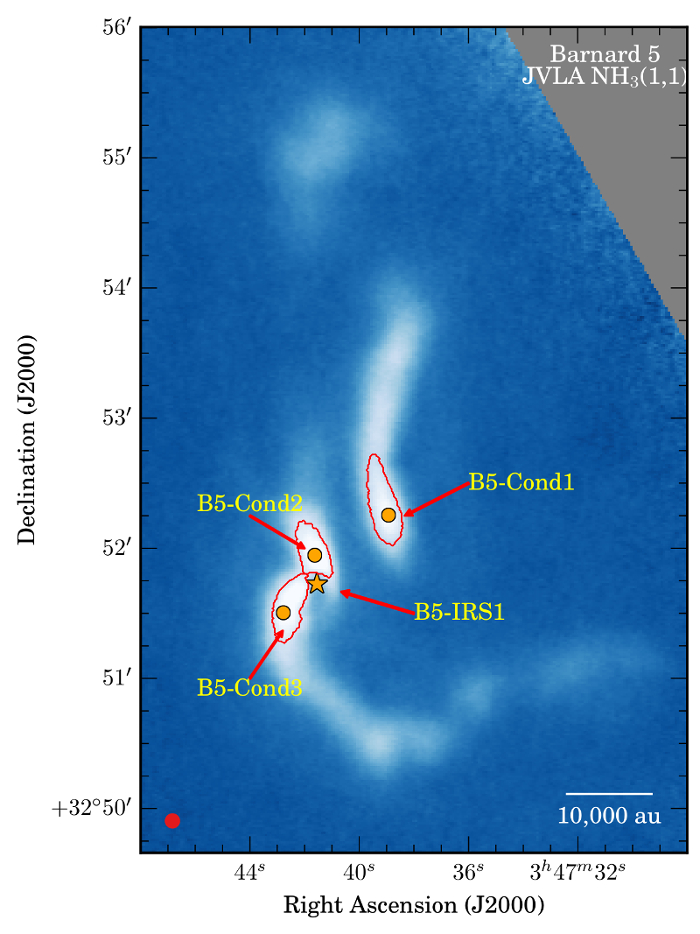| EPoS Contribution |
|
On the fragmentation of filaments and the origin of wide separation multiples
Jaime Pineda MPE, Munich, DE | |
| The initial multiplicity of stellar systems is highly uncertain, but it provides an important constrain to the understanding of star formation. A number of mechanisms have been proposed to explain the origin of binary and multiple star systems, including core fragmentation, disk fragmentation and stellar capture. Observations show that protostellar and pre-main-sequence multiplicity is higher than the multiplicity found in field stars, which suggests that dynamical interactions occur early, splitting up multiple systems and modifying the initial stellar separations. Here we report observations of a wide-separation (1,000 au) quadruple system composed of a young protostar and three gravitationally bound dense gas condensations. These condensations are the result of fragmentation of dense gas filaments, and each condensation is expected to form a star on a time-scale of 40,000 years. We determine that the closest pair will form a bound binary, while the quadruple stellar system itself is bound but unstable on timescales of 500,000 years (comparable to the lifetime of the embedded protostellar phase). These observations suggest that filament fragmentation on length scales of about 5,000 au offers a viable pathway to the formation of multiple systems. | |
 | |
| Caption: High-angular resolution image of dense gas and stellar progenitors. Background image shows the dense gas traced by NH3(1,1) and observed using the Jansky VLA and GBT. It reveals two filaments, which together host three gravitationally bound condensations. Red contours and circles show the condensation boundaries and centers, while the star indicates the protostar location. The angular resolution of the observations and scalebar are shown in the bottom left and bottom right corner, respectively. | |
| Collaborators: S.S. Offner, UMASS, US R.J. Parker, LJMU, GB H.G. Arce, Yale U, US A.A. Goodman, CfA, US P. Caselli, MPE, DE G.A. Fuller, U Manchester, GB T.L. Bourke, SKA, GB S.A. Corder, NRAO/ALMA, CL |
Key publication
Suggested Session: Fragmentation |

